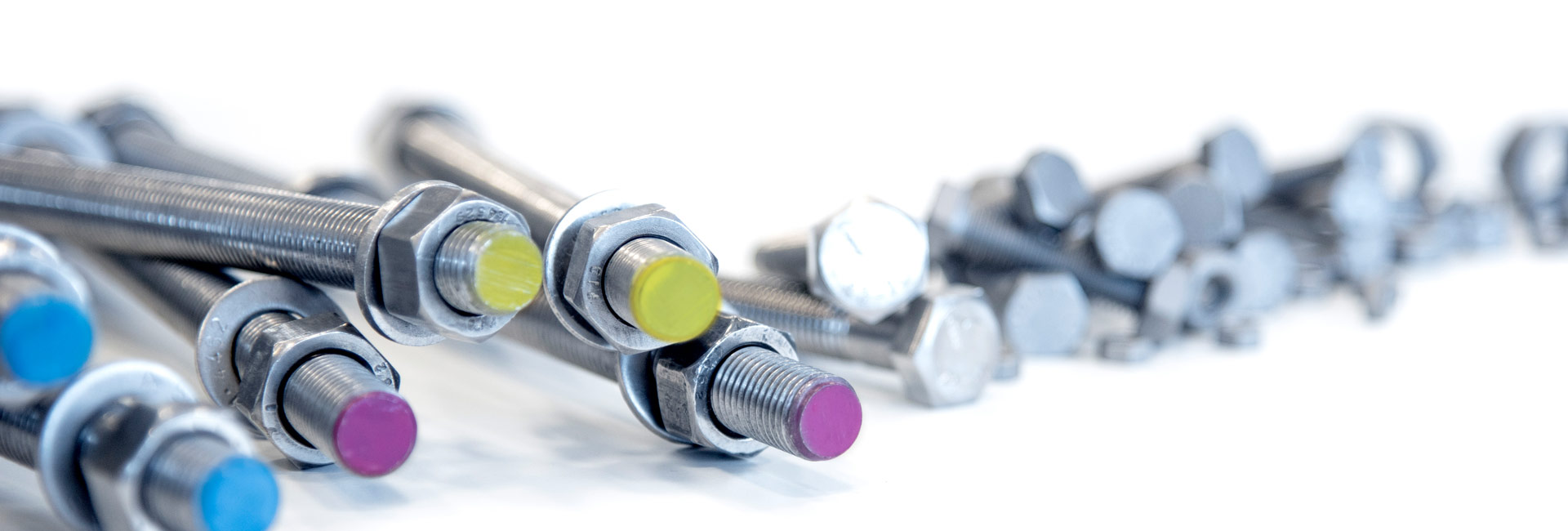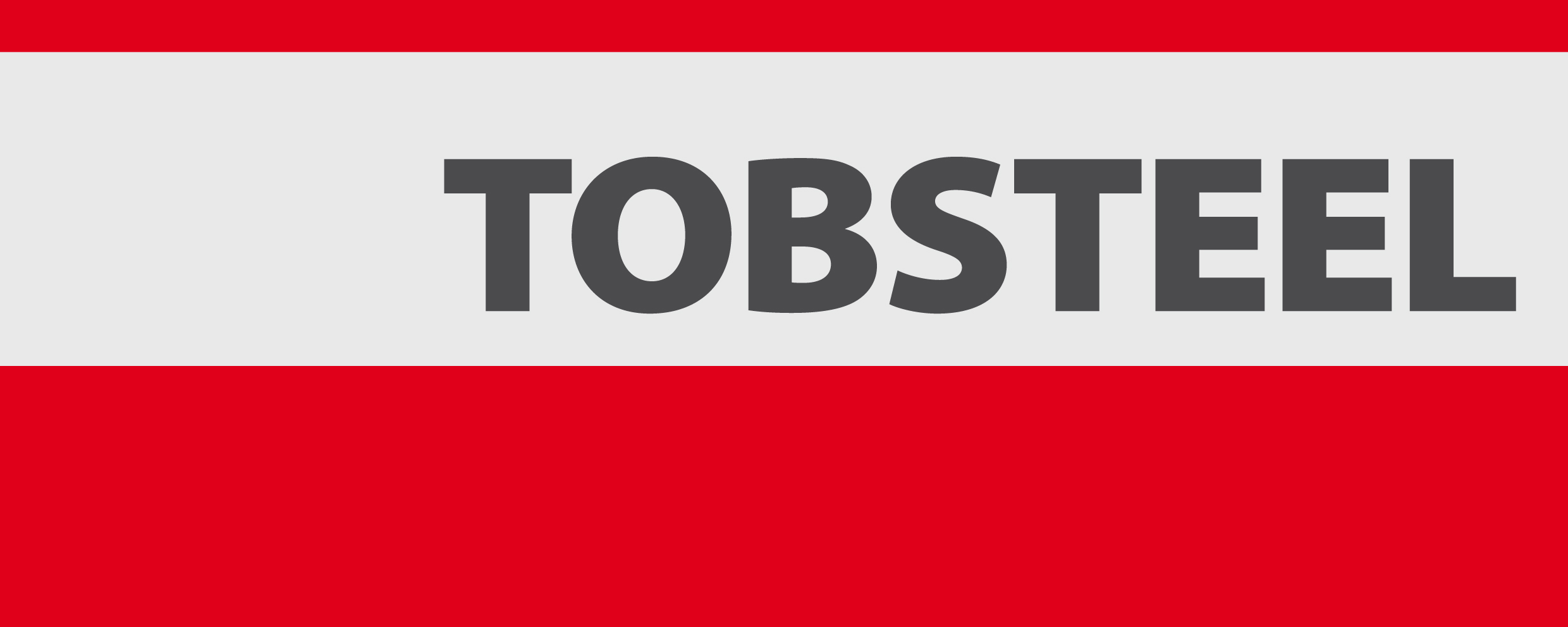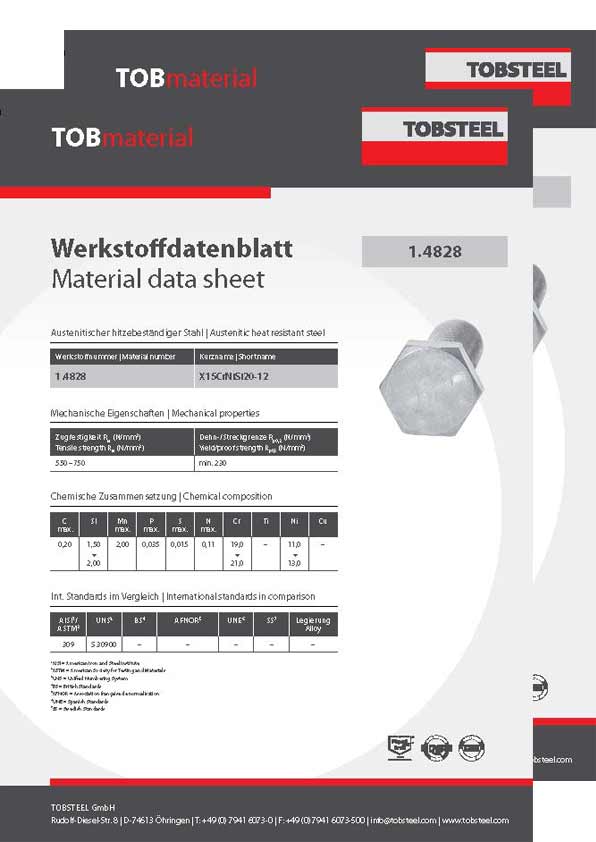
Further special material
for special requirements
In addition to our “standard special materials”, such as A2, A4, 1.4571, 1.4462 and 1.4529, we also offer a large selection of other special materials for extraordinary requirements.
You will not find these materials directly in our product catalogue, but we will be happy to procure them for you at any time.
Our further special materials can be divided into the following three groups:
- Heat-resistant special materials
- Super-duplex special materials
- High-alloyed special materials
Heat-resistant materials
for use in high temperature range construction
Heat resistant materials, such as 1.4828 and 1.4841, are ideally suited for use in the high temperature range.
Typical applications include industrial furnace construction, waste incineration plants, the petrochemicals industry or heat treatment plants in the metal industry.
Material 1.4828 is an austenitic stainless steel, which is characterized by its excellent tensile strength at high temperatures. It is predestined for applications where value is placed on good mechanical properties. In dry air, it demonstrates a high resistance up to temperatures of 1.050° C. Areas of application for the material include apparatus engineering (hardening boxes, annealing pots, annealing baskets), chains and accessories for hardening shops.
Special material 1.4841 is derived from material 1.4828. Its higher nickel and chromium content makes it much more resistant to oxidation at high temperatures. In addition to excellent strength properties in the high temperature range, it is characterized by excellent chemical resistance at temperatures up to 1,100° C. Example areas of application include the petrochemical industry or waste incineration plants.
Super-duplex steel
for the highest corrosion requirements
Super-duplex steel grades contain an increased proportion of chromium (by 25%), nickel (up to 8%) and molybdenum (up to 4%) compared to standard duplex steel. This special feature makes the materials extremely resistant to corrosion and furnishes them with high strength. Duplex steel provides a suitable solution when conventional steels are no longer able to meet the corrosion requirements. Examples of these types of steel include material 1.4410 and 1.4501.
Material 1.4410 represents the most widely used amongst the super-duplex steels. Material 1.4410 is an austenitic-ferritic steel with high corrosion, pitting and crevice corrosion resistance in seawater and chloride environments. It also demonstrates high strength, very good thermal conductivity and a low thermal expansion coefficient. Typical areas of application are in the chemical industry, paper and pulp industry, desalination plants or the onshore and offshore industry.
Material 1.4501 is also extremely corrosion resistant in media containing chloride, such as seawater. The yield strength of 0.2% is approximately doubled for this material. Areas of application include tank, pipeline and chemical tanker construction or the onshore and offshore industry.
Super-alloyed materials with brand names such as Incoloy or Hastelloy – Excellent strength at high operating temperatures
Mainly super-alloyed materials based on nickel are used in the high temperature range. Compared to conventional steels, high-alloyed materials, such as 2.4819 and 2.4668, demonstrate improved strength at high temperatures. They are suitable for extreme conditions. Examples of applications for special materials with brand names such as Incoloy or Hastelloy can be found in engines, propulsion units and aerospace turbines.
The super-alloyed material 2.4819, aka alloy C-276, is a nickel-chromium-molybdenum-tungsten alloy that demonstrates high resistance in reducing or oxidizing media.
It is one of the few materials resistant to moist chlorine gas, chloride oxide and hypochlorite. These properties make it ideal for use in environments where hot, contaminated acids and alkalis are present, such as in flue gas desulphurization plants or the natural gas and crude oil industry.
Material 2.4668 (alloy 718) is also highly alloyed and consists of a heat-treatable nickel-chromium-iron-molybdenum alloy with added niobium, titanium and aluminium. It has been especially developed for the special requirements in the aerospace industry. Its typical properties include good mechanical long and short-term properties and a high fatigue strength. It also demonstrates excellent mechanical properties at low temperatures. Turbine disks, aircraft engine casings, gas turbine rotating components, turbochargers and rocket engines are all areas where the material finds application.
Please download our data sheets
in our download section.
Do you have any questions?
If you would like to know more about our further special materials, please contact our friendly and expert staff by email, telephone or online form.
We will find the right special material for your application in consultation with you.

Our Sales Team will be more than happy to help you further:
T: +49 7941 6073-0 sales@tobsteel.com

